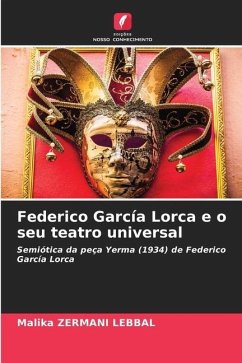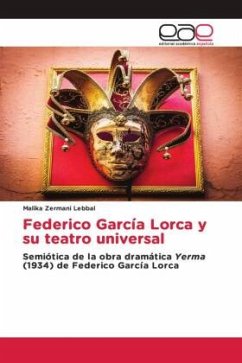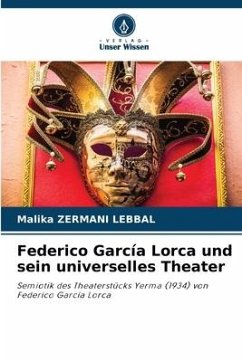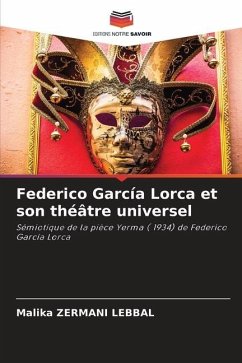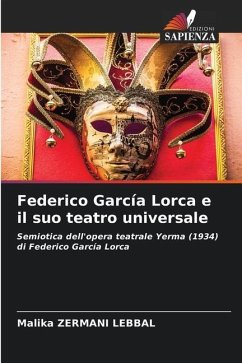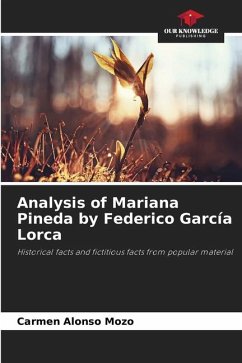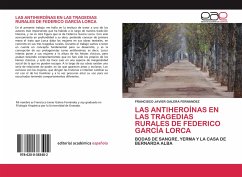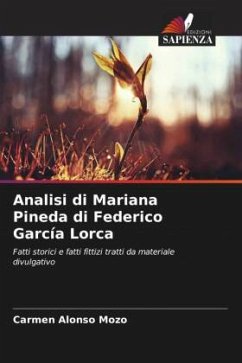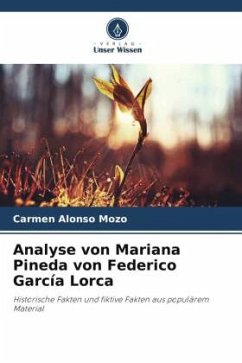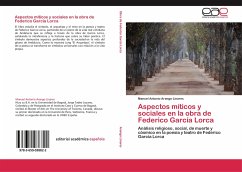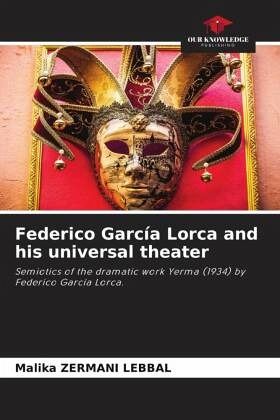
Federico García Lorca and his universal theater
Semiotics of the dramatic work Yerma (1934) by Federico García Lorca.
Versandkostenfrei!
Versandfertig in 6-10 Tagen
60,99 €
inkl. MwSt.

PAYBACK Punkte
30 °P sammeln!
The examination of Yerma and the creative process from which it emerged allows us to conclude that Federico García Lorca had very clear ideas about theater, its socio-cultural and pedagogical function. He was very aware of the situation of the Spanish theater of his time and of its deficient artistic level, of the role of the public in the formation of the theater and vice versa. And the same can be said of the role of the playwright. In this book we show how the poet García Lorca, despite having disappeared at an early age, left an exceptional artistic production, whose scope is universal, ...
The examination of Yerma and the creative process from which it emerged allows us to conclude that Federico García Lorca had very clear ideas about theater, its socio-cultural and pedagogical function. He was very aware of the situation of the Spanish theater of his time and of its deficient artistic level, of the role of the public in the formation of the theater and vice versa. And the same can be said of the role of the playwright. In this book we show how the poet García Lorca, despite having disappeared at an early age, left an exceptional artistic production, whose scope is universal, standing out as one of the most universal authors of the twentieth century. The semiotic analysis that we carried out has been one of the main objectives of our work, we have put all our efforts in the practical part. This work has been particularly reinforced with the theories of semiology elaborated by Anne Ubersfeld, Greimas, Patrice Pavis and Bobes Naves, among others. This part has been essential in our work because it has allowed us to put into practice the theoretical points of the theatrical semiology to Lorca's dramatic text.



